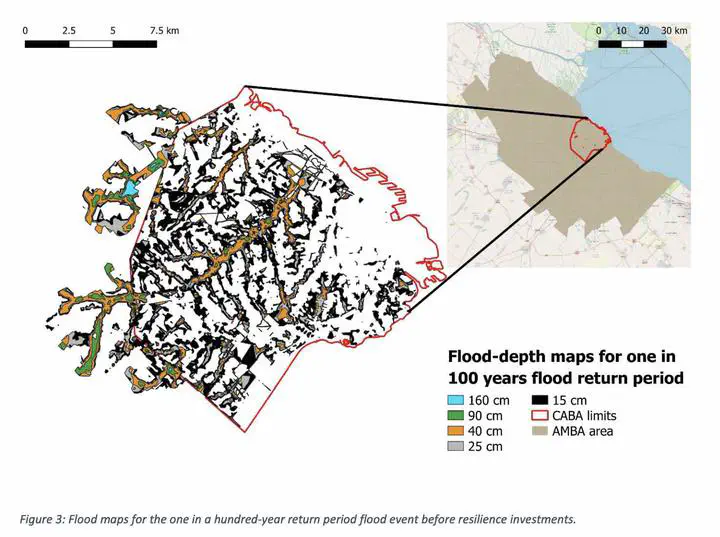Flood Protection and Land Value Creation – Not All Resilience Investments Are Created Equal

Abstract
This paper investigates the land value creation potential from flood mitigation investments in a theoretical and applied setting, using the urban area of Buenos Aires as a case study. It contributes to the literature on the wider economic benefits of government interventions and the dividends of resilience investments. Using a simple urban economics framework that represents land and housing markets, it finds that not all flood mitigation interventions display the same potential for land value creation: where land is more valuable (city centers for example), the benefits of resilience are higher. The paper also provides ranges for land value creation potential from the flood mitigation works in Buenos Aires under various model specifications. Although the estimates vary largely depending on model parameters and specifications, in many cases the land value creation would be sufficient to justify the investments. This result is robust even in the closed city configuration with conservative flood damage estimates, providing that the parameters remain reasonably close to the values obtained from the calibration. Finally, acknowledging that fully calibrating and running an urban simulation model is data greedy and time intensive – even a simple model as proposed here – this research also proposes reduced form expressions that can provide approximations for land value creation from flood mitigation investments and can be used in operational contexts.